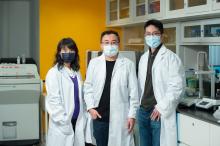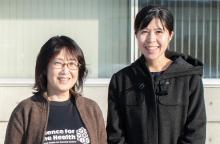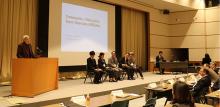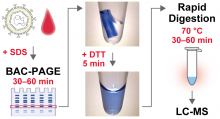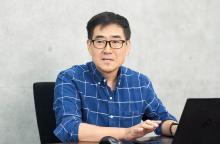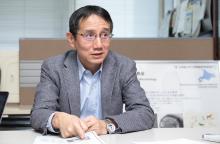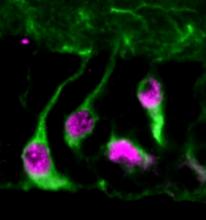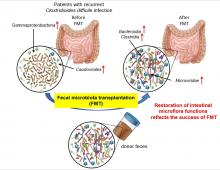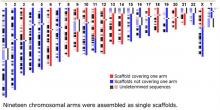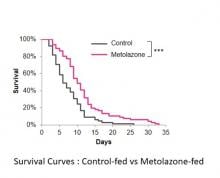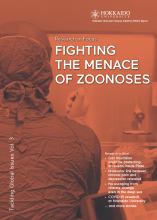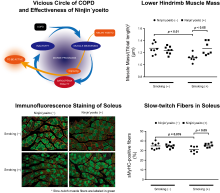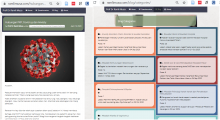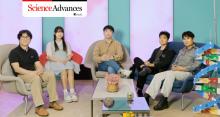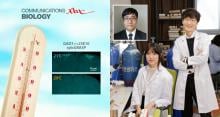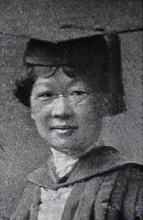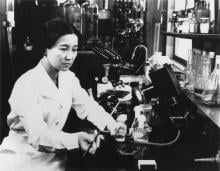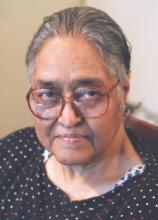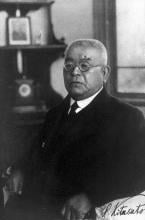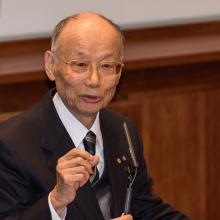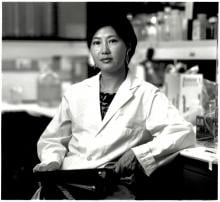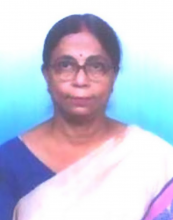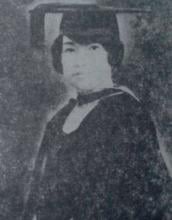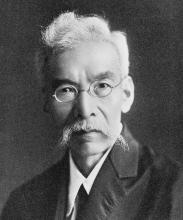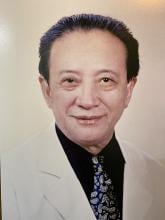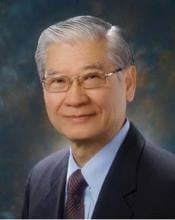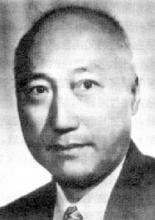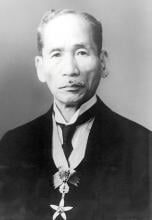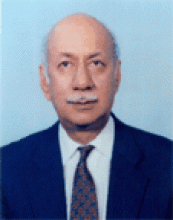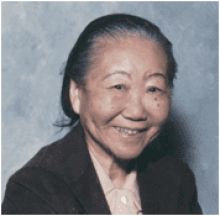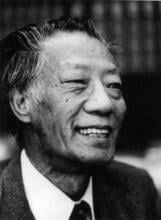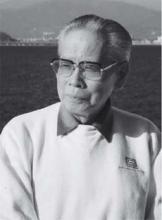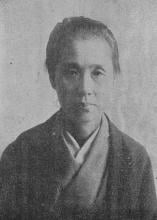Health
News
26 Feb 2021
Vitamin B6 may help calm cytokine storms and unclog blood clots linked to COVID-19's lethality. But research on it is lacking. A Hiroshima University researcher calls on fellow scientists to study its potential role.
25 Feb 2021
This article is an excerpt from the Hokkaido University research magazine “Tackling Global Issues vol.3 Fighting the menace of zoonosis" (link below).
25 Feb 2021
Medical staff and researchers from Tohoku University and Fukushima Medical University conducted a collaborative, multifaceted training program for healthcare workers to better prepare them for disasters. The training incorporated a wide range of subjects such as data analysis, cultural revitalization in the wake of disasters, and post-disaster psychological and physical well-being.
19 Feb 2021
A research team implemented a study based on a program that encouraged elderly patients at care homes in Adachi Ward, Tokyo to participate in activities such as park cleaning, gardening, and shopping. Their results revealed a surprising behavioral change.
18 Feb 2021
Polyacrylamide gel electrophoresis enables high-resolution separation of proteins extracted from biological samples, but it requires more than one day of pretreatment to recover the separated proteins trapped inside the gel for detection by mass spectrometry. BAC-DROP, our novel electrophoresis technology, uses a dissolvable form of polyacrylamide gel, which allows sample pretreatment to be completed in about 5 hours. The developed technology will enable the rapid diagnosis of viruses and disease protein markers.
18 Feb 2021
This article is an excerpt from the Hokkaido University research magazine “Tackling Global Issues vol.3 Fighting the menace of zoonosis" (link below).
12 Feb 2021
This article is an excerpt from the Hokkaido University research magazine “Tackling Global Issues vol.3 Fighting the menace of zoonosis" (link below).
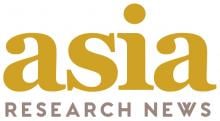
11 Feb 2021
ARN's February newsletter features research about catalyzing plastic recycling, the mental health toll of the COVID-19 pandemic, antiperovskites and oolong tea. In honor of International Day of Women and Girls in Science, we also have tips for addressing gender bias in STEM communications, and inspirational stories about pioneering female scientists from our Giants in History series. Read on...
11 Feb 2021
A brain enzyme activates dormant neural stem cells, revealing how defects in its gene could lead to neurodevelopmental disorders.
10 Feb 2021
A research group has created a device that measures how our bodies metabolize fat via our breath, allowing for the development of efficient fat burning exercises.
10 Feb 2021
In a study published in Gastroenterology – Researchers at Osaka City University and The Institute for Medical Science, The University of Tokyo, in collaboration with Brigham and Women's Hospital in Boston, report the intestinal bacterial and viral metagenome information from the fecal samples of patients with recurrent Clostridioides difficile infection (rCDI). This comprehensive analysis reveals the bacteria and phages involved in pathogenesis in rCDI, and their remarkable pathways important for the recovery of intestinal flora function.
29 Jan 2021
Although genome sequencing has come leaps and bounds over the past 20 years, there did not exist a reference genome specific to the Japanese. That is until now. Researchers at Tohoku University have completed and released the first Japanese reference genome by analyzing the genomes of three Japanese individuals using high coverage, long-read next-generation sequencing technologies.
28 Jan 2021
COVID-19 has led to psychological distress among one in three adults, large-scale meta-analysis by researchers at Duke-NUS Medical School, Singapore, reveals.
22 Jan 2021
A new technique allowed researchers to observe in greater detail how heat alters keratin proteins, helping in their search for ingredients that can prevent heat-damaged hair.
20 Jan 2021
Dental cleaning products made from virgin coconut oil could help prevent tooth decay.
19 Jan 2021
New ‘armoured’ T cells attack cancer without being suppressed by drugs given to transplant patients to avoid organ rejection.
18 Jan 2021
Researchers at the International Islamic University Malaysia have developed an electrospun nanofiber made from agarwood leaf extract.
14 Jan 2021
Researchers from the University of Tsukuba have discovered a group of neurons in the mouse brainstem that control muscle tone. Inhibiting these neuronal cells caused mice to move during REM sleep, reminiscent of REM sleep behavior disorders. These neurons were also responsible for episodes of cataplexy in a mouse model of narcolepsy; inhibiting them reduced the number of cataplexic bouts. These circuits could thus be a new target for treating these sleep disorders.
08 Jan 2021
Researchers led by the University of Tsukuba find that drinking two cups of oolong tea a day can stimulate fat breakdown while you sleep.
24 Dec 2020
Researchers at WPI-IIIS find that normal sleep in mice depends on bacteria that help make neurotransmitters such as serotonin in the gut. The article, “Gut microbiota depletion by chronic antibiotic treatment alters the sleep/wake architecture and sleep EEG power spectra in mice,” was published in Scientific Reports.
23 Dec 2020
A stress response of mitochondria, the part of our cells that produce energy to power bodily functions, is important to a longer life. A team of scientists from Osaka City University, Japan, searched through a chemical “library” of existing drugs to find one that can activate this stress response in the worm Caenorhabditis elegans. They found that an anti-hypertension drug called metolazone prolongs C. elegans lifespan, marking the first step in developing anti-aging pharmaceuticals.
23 Dec 2020
Hokkaido University is pleased to announce the publication of "Tackling Global Issues Vol. 3 FIGHTING THE MENACE OF ZOONOSES," a magazine the University’s research on zoonotic and other infectious diseases.

02 Dec 2020
“Superbug” resistant to strong antibiotics is a ticking time bomb in global public health. A joint study led by a scientist from City University of Hong Kong (CityU) has traced the potential origin of an antibiotic resistance gene and identified a type of bacteria as the possible source. The team also studied the gene’s transmission mechanisms and published their findings recently, in the hope of blocking its transmission.
30 Nov 2020
Osaka City University shows carrot-based Japanese herbal medicine “Ninjin’yoeito” helps recover muscle fibers in mice.
27 Nov 2020
IIUM psychiatrist Ramli Musa has developed a website that is helping Malaysians improve their understanding of mental health and assess their levels of anxiety.
25 Nov 2020
Materials that convert mechanical into electrical or magnetic energy could open the door to a future of wearable and structure-integrated virus sensors.

25 Nov 2020
An easy way to make millirobots by coating objects with a glue-like magnetic spray was developed in a joint research led by a scientist from City University of Hong Kong (CityU). Driven by the magnetic field, the coated objects can crawl, walk, or roll on different surfaces. As the magnetic coating is biocompatible and can be disintegrated into powders when needed, this technology demonstrates the potential for biomedical applications, including catheter navigation and drug delivery.
20 Nov 2020
A research team, affiliated with the Korea Genomics Center (KOGIC) at UNIST has released data from the initial phase of the Korean Genome Project (Korea1K), including information describing 1,094 whole genomes, along with 79 quantitative clinical traits.
20 Nov 2020
A research team, affiliated with South Korea's Ulsan National Institute of Science and Technology (UNIST) has succeeded in unveiling the principle behind the changing sleep patterns, according to the ambient temperature, through the use of Drosophila as a model of sleep.
Events
Sorry, no events coming up for this topic.
Researchers
Sorry, no researchers coming up for this topic.
- « first
- ‹ previous
- 1
- 2
- 3
- 4
Giants in history
Chinese biochemist Chi Che Wang (1894 - 1979), one of the first Chinese women to study abroad, advanced to prominent research positions at American institutions including the University of Chicago and the Northwestern University Medical School.
Ruby Sakae Hirose (1904 – 1960) was a Japanese-American scientist whose research contributed significantly to our understanding of blood clotting, allergies and cancer.
Flora Zaibun Majid ( 1939–2018) was an accomplished Bangladeshi researcher in botany and nutrition science and the first female chairperson of the Bangladesh Council of Scientific and Industrial Research.
Iranian physician and bacteriologist Azar Andami (8 December 1926 – 19 August 1984) developed a cholera vaccine to combat an outbreak that swept through the Middle East, India, Southeast Asia, and Africa in 1937.
Irene Ayako Uchida’s (8 April 1917 – 30 July 2013) strides to understand genetic diseases such as Down syndrome paved the way for early screening of chromosomal abnormalities in foetuses.
Baron Kitasato Shibasaburo (29 January 1856 – 13 June 1931) was a Japanese physician and bacteriologist whose work led to a new understanding of preventing and treating tetanus, diphtheria and anthrax.
Maggie Lim (5 January 1913 – November 1995) was a Singaporean physician who promoted family planning and expanded the access to clinics to improve the quality of life for mothers and children in Singapore’s early days.
By isolating soil microorganisms and studying the compounds they produce, Satoshi Omura (born 1935) discovered almost 500 organic compounds with unique properties that were produced by these microorganisms, including many new antibiotics.
The founder of the Adyar Cancer Institute in India, Muthulakshmi Reddy (30 July 1886 – 22 July 1968), fought to uplift women and girls from impoverished situations.
Chinese-American virologist and molecular biologist Flossie Wong-Staal (27 August 1946 – 8 July 2020) was the first scientist to clone HIV and determine the function of its genes.
Maharani Chakravorty (1937 – 2015) was one of India’s earliest molecular biologists whose research paved the way for advances in the treatment of bacterial and viral infections.
Archana Sharma (16 February 1932 - 14 January 2008) conducted research into plant and human genetics that expanded the understanding of both botany and human health. In relation to botany, she uncovered the means by which asexually-reproducing plants evolve into new species.
The first Thai woman to receive a degree in medicine, Margaret Lin Xavier (29 May 1898 – 6 December 1932), is best remembered for her compassion towards her less privileged patients.
In 1915, pathologist Katsusaburo Yamagiwa and his research assistant Koichi Ichikawa became the first to prove that chronic exposure to chemicals can cause cancer.
Filipino chemist and pharmacist Manuel A. Zamora (29 March 1870 – 9 July 1929) is best remembered for his discovery of the tiki-tiki formula to combat beriberi, a disease caused by Vitamin B1 deficiency.
After witnessing death and suffering as a youth in his home village during World War II, Nguyễn Tài Thu (6 April 1931 – 14 February 2021) set his sights on alleviating pain by becoming a doctor. After studying Traditional Chinese Medicine in China in the 1950s, Thu returned to Vietnam to serve in military hospitals. Eventually, he became the country’s foremost practitioner of acupuncture, a technique he first learned by inserting needles into himself.
David T. Wong (born 1936) is a Hong Kong-born American neuroscientist who is best known for discovering the antidepressant drug fluoxetine, better known as Prozac.
Indian organic chemist Asima Chatterjee (1917 to 2006) studied the medicinal properties of plant products, especially compounds known as vinca alkaloids.
Hsien Wu (24 November 1893 – 8 August 1959) is widely regarded as the founder of biochemistry and nutrition science in China. He was the first to propose that protein denaturation was caused by the unfolding of the protein, instead of chemical alteration.
Umetaro Suzuki (7 April 1874 – 20 September 1943) was a Japanese scientist best remembered for his research on beriberi, a disease caused by vitamin B1 deficiency, characterized by limb stiffness, paralysis and pain.
Syed Qasim Mehdi (13 February 1941 – 28 September 2016) was a Pakistani molecular biologist who was a founding member of the Human Genome Diversity Project (HGDP), which assessed human diversity by studying human migration, mutation rates, relationships between different populations, genes involved in height and selective pressure.
Tsai-Fan Yu (1911 – 2 March 2007) was a Chinese-American physician and researcher who was the first female full professor at Mount Sinai School of Medicine. She discovered that gout, a condition characterized by the painful inflammation of joints, was caused by elevated levels of uric acid in the bloodstream.
Min Chueh Chang (10 October 1908 – 5 June 1991) was a Chinese-American biologist who studied fertilization in mammalian reproduction.
A Japanese surgeon, Tetsuzo Akutsu (20 August 1922 – 9 August 2007) built the first artificial heart capable of keeping an animal alive.
Ogino Ginko (3 March 1851 – 23 June 1913) was the first registered female doctor to practise modern medicine in Japan.


